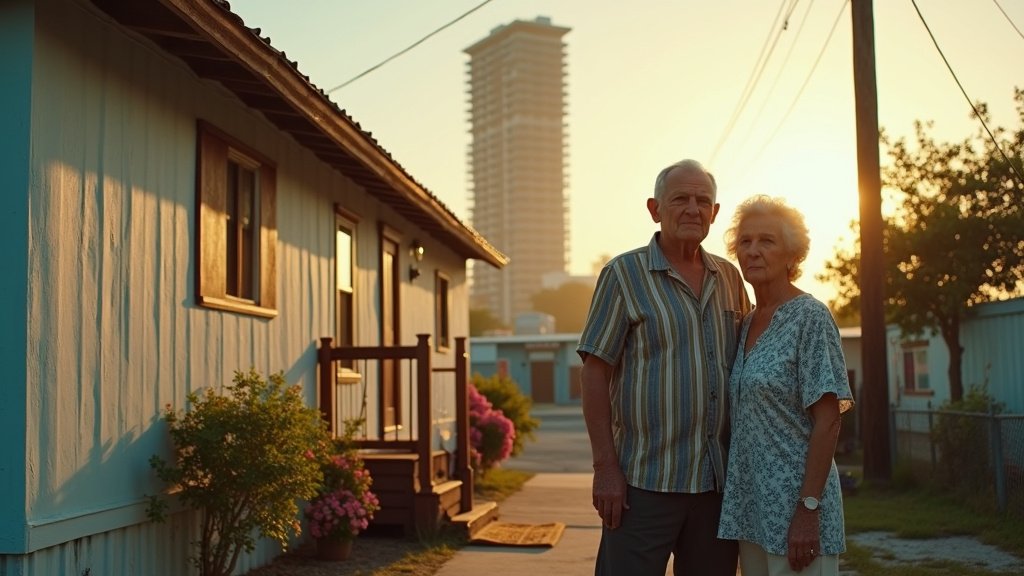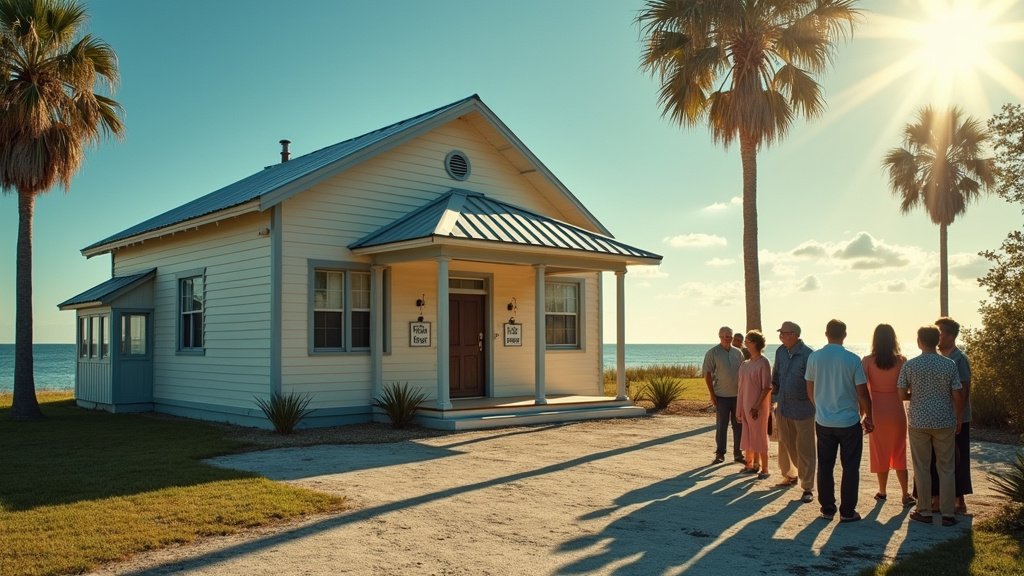In a burgeoning urban landscape like Miami, where development frequently reshapes communities, the unfolding situation at Li’l Abner Mobile Home Park in Sweetwater presents a stark paradox. Nearly a thousand working-class residents, many of whom are elderly or low-income, face displacement as their long-standing community is slated for redevelopment into new affordable housing. This contentious issue has drawn the attention of the Miami Herald Editorial Board, with columnist Mary Anna Mancuso framing it as a pivotal moment for the Republican Party to demonstrate its commitment to core conservative values: individual liberty, family values, and the protection of property rights.
The Unraveling of a Community
For 50 years, Li’l Abner Mobile Home Park provided a unique pathway to affordable homeownership in the otherwise prohibitive Miami-Dade housing market. Residents purchased their mobile homes, some investing as much as $150,000 to $170,000, while leasing the land beneath them. This model offered a semblance of the American Dream – a tangible asset and a stable community. However, in November of last year, approximately 900 families, accounting for about 15% of Sweetwater’s population, received unsettling news: eviction notices. The park’s owner, CREI Holdings, through its development management company, The Urban Group, announced plans to close the park by May 19, 2025, to make way for a new “affordable and workforce housing complex.”
Developers offered tiered buyouts to encourage residents to vacate, ranging from $14,000 (or $16,000-$20,000 when combined with state-mandated amounts) for those leaving by January 31, 2025, down to $3,000 by the final May deadline. For homeowners like Enrique Zelaya and Hamilton Dos Santos, who had recently invested significant life savings into their homes, these offers were a pittance, rendering their principal assets virtually worthless overnight.
A Perplexing Proposition: Affordable Housing vs. Existing Homeowners
The irony of replacing existing affordable homeownership with new affordable housing is not lost on the affected residents. While The Urban Group has stated that current tenants will have priority access to apartments in the upcoming Li’l Abner III building, and future developments on the site, including the first month free, the practical realities are grim. The new units are anticipated to be significantly more expensive than the current living costs in the mobile home park, pushing many residents out of a housing market already ranked among the least affordable in the country.
Adding to the controversy are allegations of deceptive practices. Some residents report purchasing their homes just months before the eviction notices, with lease agreements falsely indicating no redevelopment plans. Furthermore, the demolition process has faced scrutiny, with reports of asbestos contamination leading to significant fines for the company.
The Battle in the Courts
The majority of Li’l Abner residents have relocated, but by May 2025, over 220 families, representing roughly 1,000 individuals, remained and chose to fight. Their defiance culminated in a class-action lawsuit filed against CREI Holdings, the City of Sweetwater, and Miami-Dade County. The lawsuit alleges wrongful eviction and claims that the park owners failed to offer residents the option to purchase the park, a right that Florida law may grant. Residents are seeking $50,000 per homeowner plus legal expenses, alongside more time to secure alternative housing.
A mass hearing for approximately 210 eviction cases took place on August 14, 2025, before a panel of five county judges in Miami-Dade County Courthouse. This pivotal court date highlights the significant legal hurdles faced by homeowners in mobile home communities across Florida, where they own the structure but not the land, creating a precarious property right often described as being closer to owning a car than a traditional home.
Conservatism on Trial in Miami
This unfolding news story presents a unique challenge to the Republican Party, especially in a region like Miami-Dade, which saw a historic shift in 2024 with Donald Trump’s victory – the first Republican presidential candidate to win the county since George H.W. Bush in 1988. This win was partly attributed to the votes of working-class Latino voters who resonate with conservative values.
Mary Anna Mancuso’s Editorial piece directly calls out the GOP, arguing that the plight of Li’l Abner residents directly contradicts the party’s espoused principles of protecting individual liberty, family values, and fundamental property rights. She questions how a party championing these ideals can stand by as government-subsidized displacement wipes out the life savings and investments of diligent working-class homeowners. While Florida has passed legislation aiming to protect mobile home owners, such as a 2024 law facilitating mediation for rent disputes, current laws do not cap lot rent increases and may not fully shield residents from market-driven redevelopments.
A Broader Trend and a Lingering Question
The situation at Li’l Abner is not isolated; it’s part of a broader statewide trend where mobile home parks, often occupying valuable land, are being targeted for redevelopment across Florida. The clash between developers seeking to maximize land use and vulnerable homeowners highlights a systemic issue in the housing market, particularly for those on fixed incomes or with limited mobility.
The outcome of the Li’l Abner saga will serve as a critical benchmark. It will not only determine the fate of hundreds of families but also test the practical application of political ideologies. Will the Republican Party actively intervene to protect the property rights of these working-class homeowners, aligning actions with rhetoric? Or will the powerful forces of development and the allure of new affordable housing projects, however ironically, ultimately redefine the American Dream for those who thought they had already achieved it?





